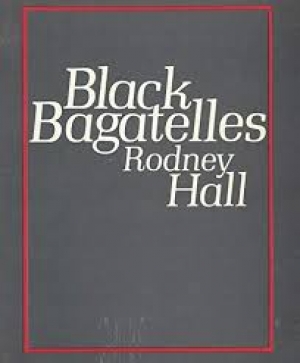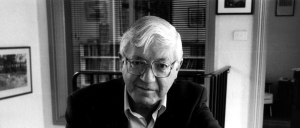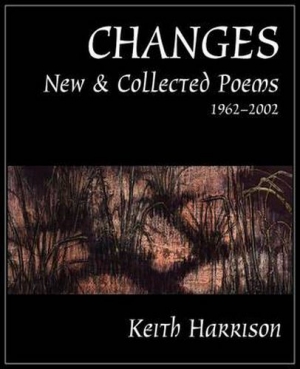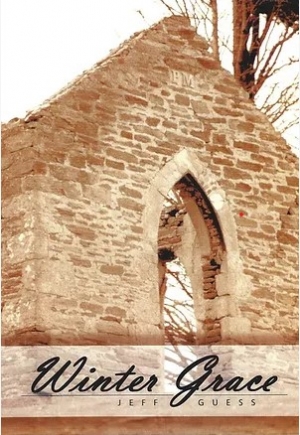Poetry
Rodney Hall has always been a professional poet in the sense that he professes and declares – indeed, almost seems to make himself – in his poetry. The poetry seems to become a means of coping with experience; more, it becomes perhaps the central part of the experience. So it is in Black Bagatelles. But here, art and its expectations become less something for living than for dying by. Not that this book marks any great break with what has gone before, any rupture of identity. On the contrary, implicitly or explicitly, death has always been a major presence in his poetry. Its preoccupation with art and artifice represents, amongst other things, an attempt to give himself alms against oblivion. But in these poems the note of doomsday, sounded in the title of his first collection of verse, Penniless Till Doomsday; rings out, not portentously, but wittily, with immediacy and perception. Hall has always been concerned with masks, poses, the dance of experience. Now, the ‘masks compose themselves tableau-still’ and the source is revealed of the ‘desperate rustlings going on behind’. This source then is death, but not death majestical and metaphysical as Donne and the seventeenth century ‘knew him, not moralising and the servant of the mighty God as in the middle ages, but jester and joker, the one who calls the tune to life’s comedy, to
… the hold of
heart
on heart the band
of gristle the bloodtie
just
waiting to be
bled to death by a clever cut
... (read more)A biographer follows the life of a chosen person or a chosen group or people, or perhaps a particular scene or epoch. An autobiographer, like a snail outed by the Sun, looks back at his or her tracks and tries to explain how he or she got this far, possibly hinting at vindication or in more extravagant mode, self-immolation. Unfortunately I am a poet, and a prose writer only to earn a living. My field is verse, but l am involved on a daily basis with literature in diverse forms, especially journalism, broadcasting, and reviewing. I believe also that I am a secret biographer and autobiographer, as so much of the poetry I write and read shadows the functions of biography.
... (read more)Oliver Dennis reviews 'Totem: Totem poem plus 40 love poems' by Luke Davies
Luke Davies is best known as the author of Candy (1997), a novel about love and heroin addiction. His poetry, meanwhile, has attracted attention for its characteristic interest in how we relate to an unknowable universe; it is also unusual in that it draws on a more-than-everyday understanding of theoretical physics. In this latest volume, which comes in two parts – a long meditative poem followed by forty short lyrics, both celebrating love – an awareness of the vast reaches of space remains, although its expression is now less factual and has acquired a new subtlety.
... (read more)The word ‘collected’ on a book of poems has its embedded dangers. Collected Poems are like autobiographies: they encourage readers to confuse them with the writer’s flow of life. And we can all see what’s wrong with that, I hope. That cagey old player, W.H. Auden, issued this injunction:
Great writers who have shown mankind
An order it has yet to find,
What if all critics say of you
As personalities be true?
You had the patience that survives
Soiled, shabby, egotistic lives …
He also refused to write an autobiography.
... (read more)‘His poems, now more and more exclusively in prose, have become taut and aphoristic, for he seeks patiently to release energy potential in language, and to make of poetry an instrument of revelation, indeed a close ally of philosophy.’
These words, by R.T. Cardinal in The Penguin Companion to European Literature (1969), in fact gloss the poetry of René Char. They could be taken as an apt description of Peter Boyle’s fourth collection, Museum of Space, which represents a subtle but significant shift in his oeuvre since the virtuoso What the Painter Saw in Our Faces (2001). These are sparer, more abstract poems, less cluttered by competing images – deft, attenuated and often written in a lean, delicate prose, as if having left some of the mechanical devices of poetry behind for something more suggestively metaphysical.
... (read more)While we are apart I will
wear no shoes, walk barefoot
over Nevada sands, tune my heart
to 33 kilohertz, synchronise
my inner ear to terra firma, and,
While my brother milks
I return to mist drifting up the fence posts.
The night’s sheet slowly evaporating
giving in to day – already a process of action.
Cows backing off the platform
make their way up the track –
the stumps of their tails flicking at flies
they regard me with surprise.
The summer night is dangerous and deep.
I lie, dead still, aware of the tiniest sounds
Being so full of joy I cannot sleep.
The night is dangerous, so many lives.
I love my husband well. A sharp moon
Rubs the spine of the barn. Nothing moves.
(for David)
je ne sais quoi
but it is written in the sound of this melange
of consonants and vowels that a blind
old impressionist defeats Duchamp
Oliver Dennis reviews ‘Taking Shape’ by Steve Evans, ‘Winter Grace’ by Jeff Guess and ‘Nomadic’ by Judy Johnson and
In these lines, taken from ‘The African Spider Cures’, Judy Johnson might almost be describing her poetics. Nomadic, Johnson’s second poetry collection, consists of well-made poems that combine objective views of the world with snippets from the poet’s personal life. In the title poem, which centres around a recent separation, Johnson compares her experience of finding an illicit love letter with a Bedouin shepherd-boy’s chance discovery of the Dead Sea Scrolls: ‘There is no connection between the two events,’ she writes, ‘[…] Yet I encounter coincidence.’
... (read more)





